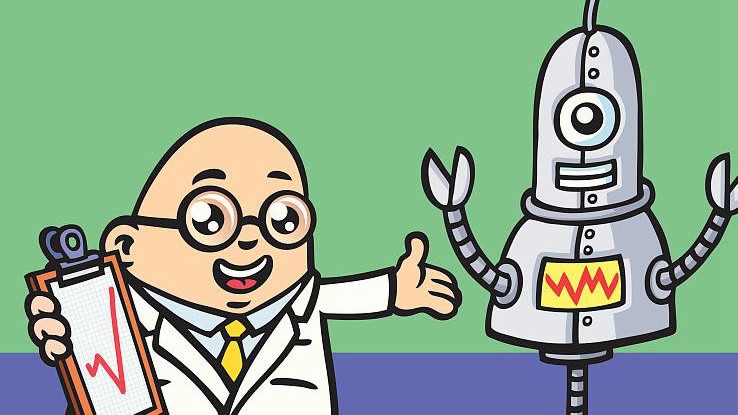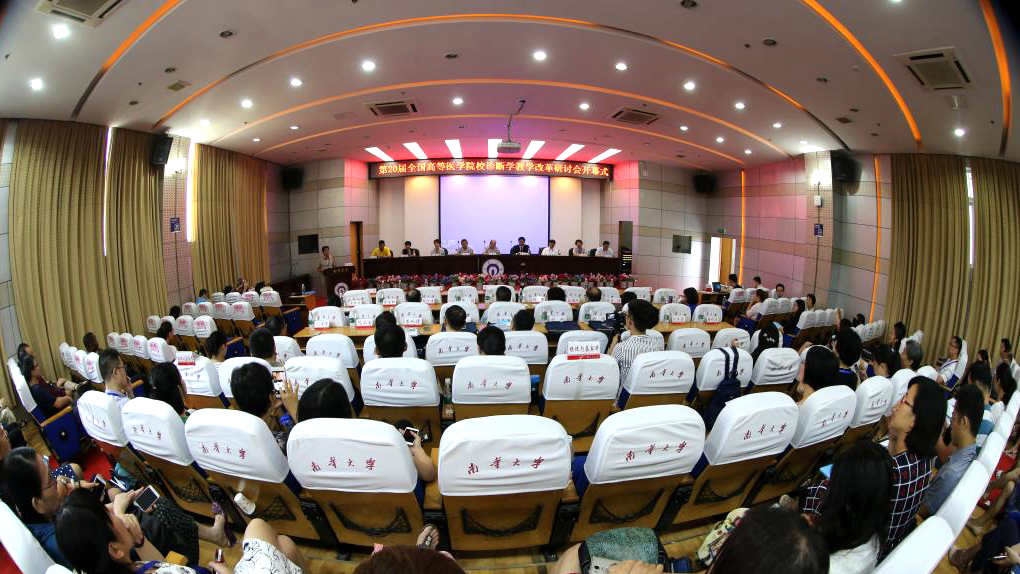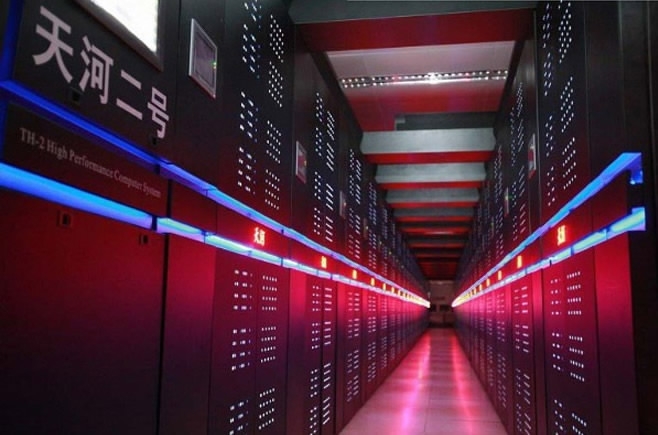
AI
23:13, 20-Aug-2017
The doctor will see you now: Would you trust AI to treat you?
By Gao Yun

After "talking" with the patient, the artificial intelligence (AI) "doctor" provides a checklist according to the symptoms and prescribes the optimal medical treatment based on the diagnosis.
What all human doctors need to do is to verify the therapy.
That's a typical application scenario of this AI "doctor" fitted with the clinical decision support system (CDSS) developed by a team led by Peng Shaoliang, deputy director of the National Supercomputing Center in Changsha.
It made its debut at a seminar held by the University of South China in Hengyang city, in central China's Hunan Province on Saturday, during which it gave diagnoses in 100 clinical cases in 4.8 seconds, with an accuracy of 98 percent.

The seminar by the University of South China in Hengyang city, central China's Hunan Province on Saturday. /uscnews.usc.edu.cn
The seminar by the University of South China in Hengyang city, central China's Hunan Province on Saturday. /uscnews.usc.edu.cn
Dubbed "Big Superman" by doctors, this domestically-made "doctor" has been equipped with the technologies of clinical big data, supercomputing and AI.
It requires an AI algorithm as the core, clinical big data as support evidence and supercomputing power to do online computing for the "robot doctor" to fully perform its duties, said Peng and his colleague Doctor Wei Hong.
It has stored tens of millions of cases and built up diagnostic models of over 30 diseases, including tuberculosis and depression which has a high misdiagnosis rate.
The models' updating and complicated algorithm are all operated by China's Tianhe-2 supercomputer system and based on trial tests in some of the country's first-class hospitals, the AI "doctor" scores 20 percent higher in diagnosis accuracy than traditional diagnosis.

China's Tianhe-2 supercomputer. /Xinhua Photo
China's Tianhe-2 supercomputer. /Xinhua Photo
It is designed as a general practitioner, said Peng, and can constantly acquire new medical knowledge, experiences and diagnosis procedures, as well as new knowledge in designated medical databases at home and abroad.
It is able to learn to diagnose a new disease every one to two weeks, he added.
However, it won't replace human doctors, but act as an assistant to them, said Kang Xixiong, director of the clinical laboratory diagnostics department at Capital Medical University.
"The AI doctor will assist human doctors rather than replace them," Kang said, adding that the system aims to free human doctors from heavy workloads and make mutual improvement.
"For China's medical institutions, especially those in poor areas, AI would be a good assistant," he added.
The other side
But while some in the industry have welcomed this electronic helping hand, other professionals have been more skeptical about how useful AI can really be in the field of medicine.
“While it’s true that computer recall is always going to be better than that of even the best doctor, what computers can’t do is communicate with people,” said Clare Aitchison, a medical practitioner from Norwich, “People describe symptoms in very different ways depending on their personalities.”
Aitchison’s says that a human doctor who knows a patient well can filter what is said and make an appropriate diagnosis.
Aitchison, speaking to the MIT Technology Review ahead of the launch of a similar AI app in the UK, said, “Either it will be too sensitive and result in increased attendance at the doctor’s, in which case there isn’t much point to it, “or it won’t be sensitive enough and will result in missed serious diagnoses.”
1490km

SITEMAP
Copyright © 2018 CGTN. Beijing ICP prepared NO.16065310-3
Copyright © 2018 CGTN. Beijing ICP prepared NO.16065310-3